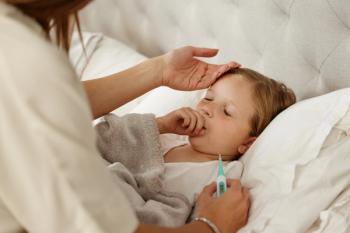
CAReS Program: Improved Asthma Outcomes for At-Risk Youth
Pharmacists can help at-risk youth with asthma through the CAReS program, providing school-based asthma care.
School-based, pharmacist-led interdisciplanary health care delivery programs can help provide comprehensive asthma care to at-risk pediatric populations, according to study results published in the Journal of the American Pharmacists Association.1
The CAReS program, established in Pennsylvania in school systems to serve underserved children, is pharmacist-led and combats health care disparities in the pediatric population.
Using data retrieved from the program, researchers aimed to investigate the program’s impact. The elements reviewed included follow-up appointment attendance, the delivery of guideline-based care, asthma control, asthma morbidity, and asthma-related knowledge and the children’s quality of life.
The study evaluated 50 children (mean age, 8.9±1.7 years; 52% boys) with asthma from 6 elementary schools from September 2014 to December 2017. The children evaluated completed 5 visits over a 3-month period, withA 100% show rate was achieved in 92% of participants. Fifty-six percent of children were African American and had a life-time exposure to environmental tobacco smoke and . 53.1% a high body mass index.
At baseline, 57.1% of children had persistent asthma. In these children, only 21.4% were prescribed controller therapy at baseline, which improved to 78.5% upon matriculation. Asthma control significantly improved, and the reduction in patients who required an emergency department visit after enrollment was also significant—31.3% to 14.6%.
The goal of 100% treatment plan knowledge was achieved in 67% in parents within 1 month and increased from 6% to 60% in children over 3 months. Asthma-related quality of life also significantly improved.
Study limitations included the number of children and caregivers who did not complete the required surveys at 1 or more follow-up visits, and an inability to demonstrate improved medication compliance.
“Asthma control and reduced morbidity in high-risk pediatric patients is achievable as demonstrated by our study,” the researchers concluded. “Our findings support the feasibility and value of [a] pharmacist-let, interdisciplinary school-based health care delivery model in providing comprehensive asthma care to at-risk pediatric populations.”
Reference
- Elliott
[LB4] JP, Morphew T, Gentile D, Williams P, Barrett C, Sossong N.Improved asthma outcomes among at-risk children in a pharmacist-led, interdisciplinary school-based health clinic: A pilot study of the CAReS Program. J Am Pharm Assoc. Published online November 10, 2021. doi:10.1016/j.japh.2021.11.09
Newsletter
Pharmacy practice is always changing. Stay ahead of the curve with the Drug Topics newsletter and get the latest drug information, industry trends, and patient care tips.























